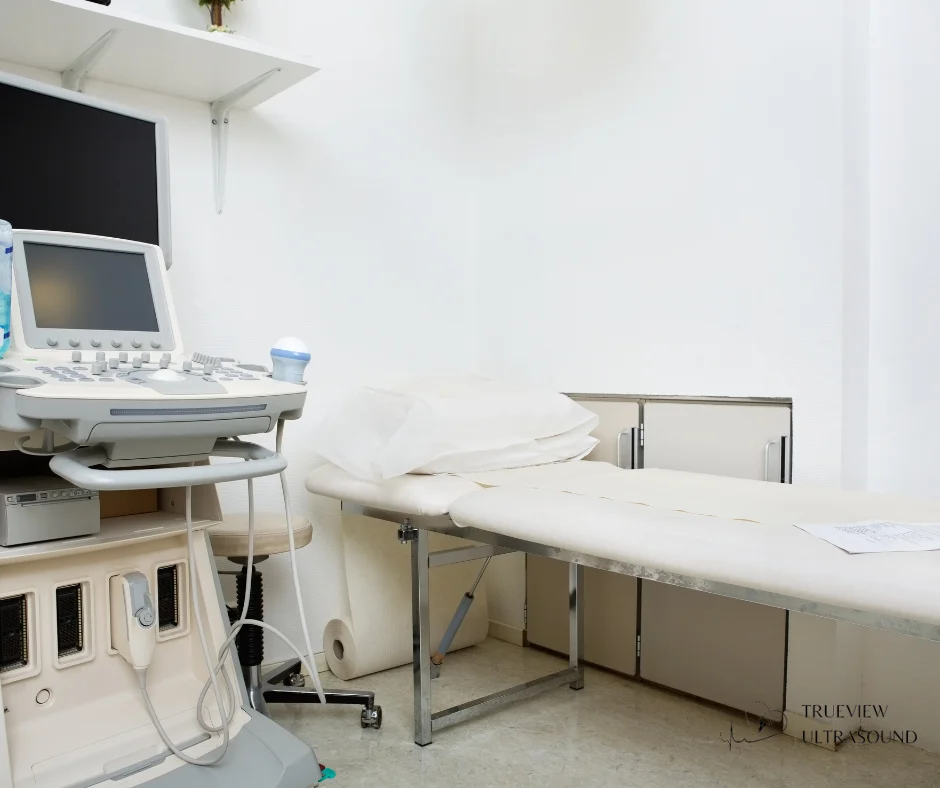Thyroid issues affect an estimated 20 million Americans, with up to 60% of cases going undiagnosed, according to the American Thyroid Association. If you’re experiencing symptoms such as fatigue, weight changes, or neck swelling, your doctor may recommend a blood test, a thyroid ultrasound, or both. But what does each test tell you? And how do you know which one is right for your situation?
Understanding the strengths and limitations of both diagnostic tools can help you make more informed decisions about your thyroid health. In this article, we’ll compare thyroid ultrasound vs. blood tests, highlight when each is necessary, and guide you through what to expect from the results.

What Is a Thyroid Ultrasound?
A thyroid ultrasound is a non-invasive imaging scan that uses sound waves to produce real-time images of the thyroid gland. It helps identify physical abnormalities, such as nodules, cysts, or enlargement. Because ultrasounds don’t use radiation, they are safe for all patients, including pregnant women.
In cases where a lump is detected during a physical exam, an ultrasound can determine the size, shape, and composition (solid or fluid-filled) of the nodule. This information is crucial when deciding whether a biopsy is needed.
If you’re preparing for a diagnostic scan, knowing the right steps before your appointment can significantly improve your experience. This guide to ultrasound preparation in Roseville outlines what to expect.
What Do Thyroid Blood Tests Measure?
Blood tests evaluate the function of the thyroid gland. They measure levels of:
- TSH (Thyroid-Stimulating Hormone)
- Free T4 and Free T3
- Thyroid antibodies (for autoimmune conditions)
Abnormal hormone levels can signal hyperthyroidism (overactive thyroid) or hypothyroidism (underactive thyroid), even when the gland looks normal on an ultrasound. This makes blood tests essential for identifying functional disorders.
According to a 2022 study published in Frontiers in Endocrinology, blood tests have an accuracy rate of 95% in detecting hormonal imbalances that affect metabolism, heart rate, and energy levels.
Pros and Cons of Thyroid Ultrasound
Pros:
- Detects structural abnormalities
- Safe and non-invasive
- Provides real-time imaging
- No radiation or contrast agents required
Cons:
- Cannot assess hormone levels
- May not detect functional disorders
- Requires interpretation by a trained sonographer
TrueView Ultrasound provides detailed ultrasound screenings that help detect hidden physical thyroid issues, even when lab results are normal.
Pros and Cons of Thyroid Blood Tests
Pros:
- Highly effective at detecting thyroid function disorders
- Helps monitor long-term management of thyroid diseases
- Widely available and relatively inexpensive
Cons:
- Cannot detect nodules or tumors
- Results may vary depending on medications, stress, or lab quality
If you’re unsure whether symptoms point to a thyroid imbalance or something else, combining both tests often leads to the most accurate diagnosis.
When Should You Get a Thyroid Ultrasound vs. Blood Test?
Doctors typically recommend blood tests if you report symptoms like fatigue, mood changes, or irregular heartbeat. These symptoms often indicate hormonal imbalances. In contrast, a thyroid ultrasound is recommended when a lump is felt in the neck or if you’re at risk for thyroid cancer due to family history or radiation exposure.
If you’re pregnant or planning a pregnancy, understanding the impact of thyroid health on your baby is critical. This makes it important to consider how diagnostic scans connect to fetal imaging as part of comprehensive prenatal care.
Ultrasounds are also useful in cases where blood tests are inconclusive or when nodules need to be monitored over time. For high-risk patients, ultrasounds provide ongoing evaluation without the risks of radiation or invasive procedures.
Combining Imaging and Lab Testing for a Clearer Diagnosis
The best approach is often to use both tests together. Blood tests give insights into how your thyroid is functioning, while ultrasounds reveal what the gland looks like. This two-pronged approach allows for early intervention, whether it’s medication for hormone imbalance or biopsy for a suspicious nodule.
A comprehensive scan with a certified sonographer not only enhances diagnostic accuracy but also reduces patient anxiety. At TrueView Ultrasound, our certified team is here to provide reliable, fast, and accurate scans that integrate seamlessly into your overall health journey. You can contact our Roseville ultrasound team for more information or to schedule a session.
